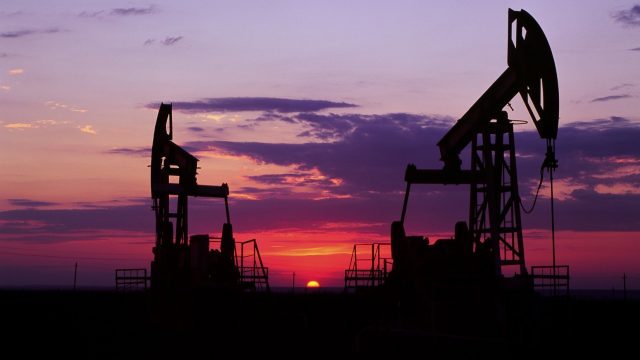Could Alaska's Oil Price Debacle Happen To North Dakota?

Alaska’s economy and state budget are based on oil. Not surprisingly, the recent freefall in oil prices has not been good to them, but is this a cautionary tale for North Dakota?
…the state woefully misread the direction of oil prices, predicting they would remain at over $100 per barrel for fiscal 2015. They are now below $60.
For now, they are counting on $14 billion in rainy day funds — double those of any other state. But rating agency Moody’s Investors Service, financial analysts and others are worried that this buffer will not be enough.
“The oil plunge caught them off guard, and now they are trying to recalibrate,” said Ted Hampton, at analyst at Moody’s, which cut its outlook on Alaska to “negative” from “stable” in December.
With lawmakers set to begin the 2015 legislative session next week, it’s worth noting that Governor Jack Dalrymple’s budget predicts that oil prices will be much higher than they are currently.
“The budget, which must be approved by state legislators, is based on oil prices of $74 to $78 per barrel for the first year and $79 to $82 per barrel for the second,” reported Reuters of Dalrymlpe’s executive budget last month.
The price of WTI crude as of today was $53.27, just slightly above a trigger price which would slash the state’s oil prices in half. In a recent Bismarck Tribune article, North Dakota commodities trader Eugene Graner suggested that oil prices would remain in the $50 per-barrel range for the rest of this year, and may even be lower this coming fall. After that, Graner doesn’t expect oil to go north of $80 per barrel any time soon (though I think many in North Dakota would welcome a return to even that level).
Suffice it to say that we’re likely to see oil prices well below what Governor Dalrymlpe has projected for the rest of this year. And that’s not good (the biennium for which Dalrymple has budgeted begins on July 1st).
Even if the trigger doesn’t trigger, lower prices will mean a decline in oil activity. Which will mean a decline in hiring, purchases, etc. While state officials are fond of pointing out that the state’s general fund only receives about $300 million per biennium in direct oil tax revenues, the impact of declining oil activity would hit state revenue streams almost across the board.
Alaska made a bad bet on continued high oil prices. Has Dalrymple made a similarly ill-advised bad bet?
And will lawmakers follow his lead?
The “boom” era for North Dakota’s oil fields is over. I don’t think there’s any question about that. The challenge for state policymakers is, what comes next?




